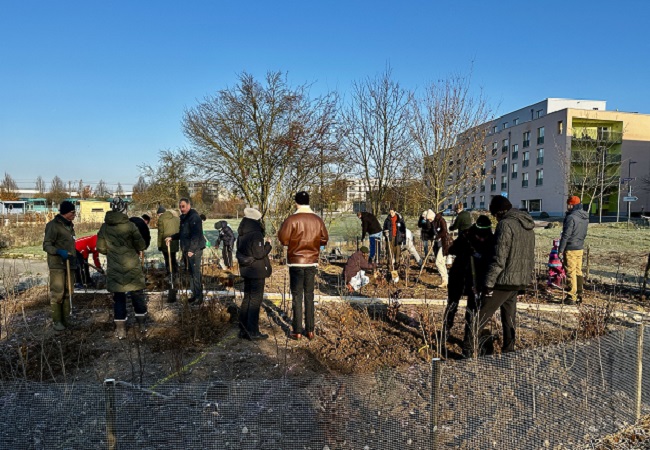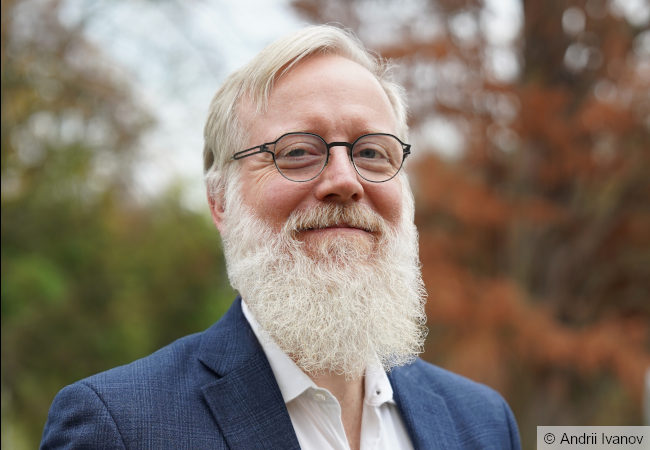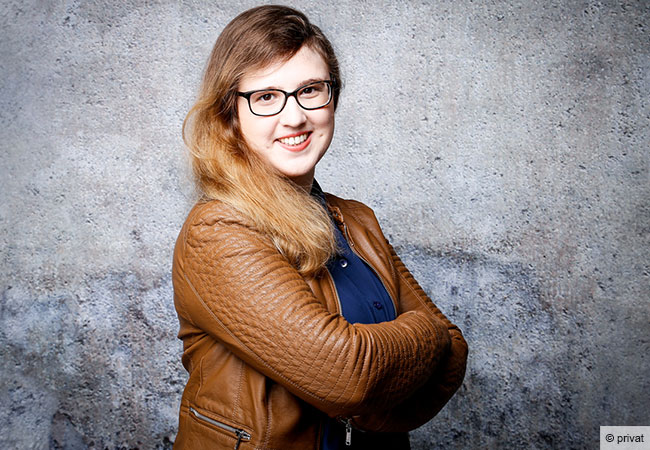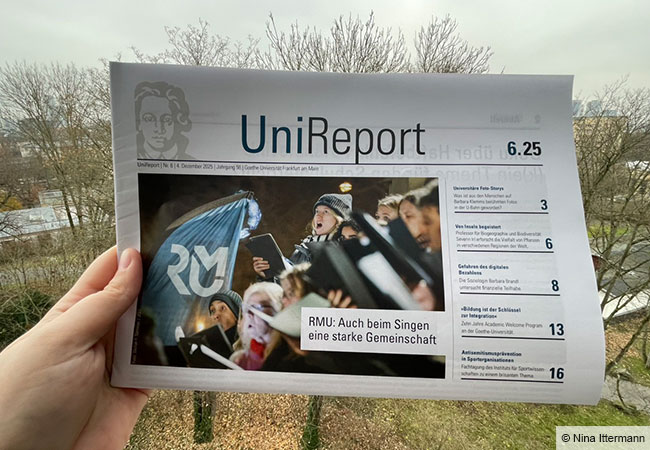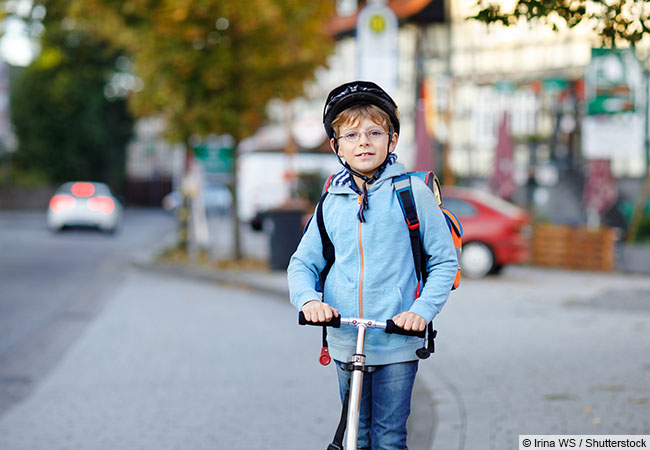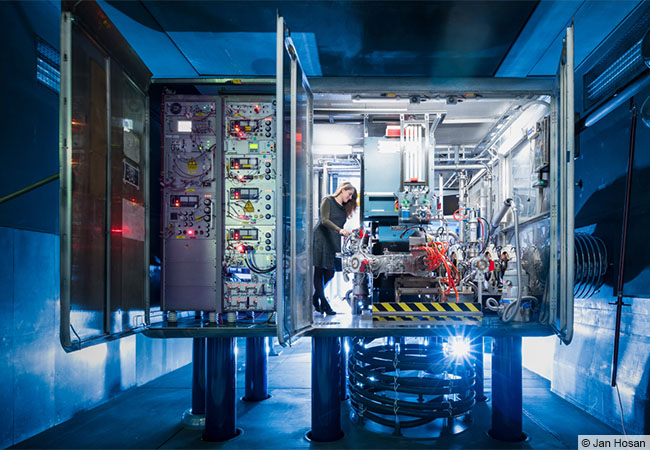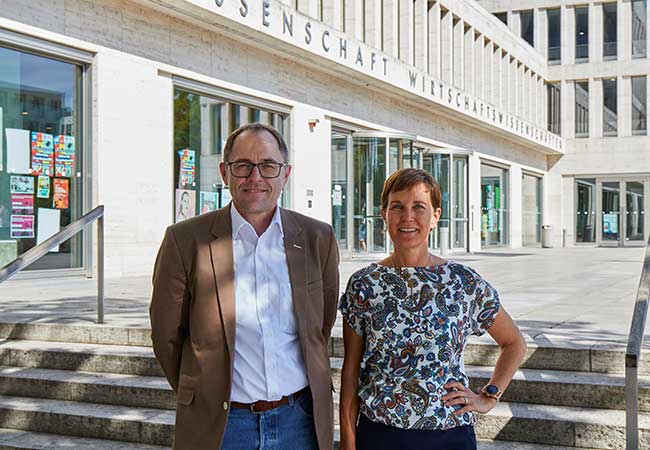
On the Westend Campus, the “RuW” building housing the Faculty of Law and the Faculty of Economics and Business Administration is one of the newer buildings (it dates from 2008), and as such was constructed with a more climate-conscious design. However, new technologies developed since the building opened can now save significantly more energy without causing inconvenience to the occupants. A pilot project on one floor of the RuW – where the Dean’s Office and the Marketing department in the Faculty of Economics and Business Administration are located – has been testing intelligent thermostats intended to reduce the demand for heating energy by 40 percent.
Dirk Seitz, the Team Leader in Energy Management, is always on the go when it comes to implementing good energy solutions for Goethe University. So his interest as an engineer was quickly aroused when the start-up Vilisto contacted him and told him about its new development. The firm from Hamburg has launched self-learning thermostats onto the market, which can automatically adjust the heating energy supplied in rooms to the actual needs. If there is nobody present in a particular room, the temperature is automatically reduced for that room. The new company had already scored successes in other fields and won the Hessian State Prize for Energy. Seitz and Vilisto agreed to try out the technology in a pilot project at Goethe University.
Dirk Seitz knew several colleagues from earlier discussions on saving energy at Goethe University (a bonus system offers rewards when employees identify energy-saving solutions in their own departments: https://tinygu.de/em-anreizsysteme – in German), who were actively promoting environmental conservation at their workplaces. One of them was Nicole Marx, who works at the Dean’s Office in the Faculty of Economics and Business Administration. She thought it was an excellent project and was willing to launch a discussion with her colleagues in the Dean’s Office to obtain their support. “Even before Corona we had already identified a few measures for improving our ecological footprint,” she says. “For example, we use the ‘server hotel’, a service run by the university’s IT Services, and are planning – and in some cases having already realized – the introduction of shared printers instead of separate printers in each office.” Given this background, the joint decision was quickly taken to install the self-learning thermostats on this floor of the RuW building.
As the floor convectors are located underneath grilles, it is difficult to adjust the heaters in the RuW building manually. But this is not a problem for the self-learning thermostats, which turn the heating on at the right time in the morning, ready for the occupants, and turn it down again fully automatically, as soon as no more heat is needed and the offices are not in use. The results of the (non-binding) project analysis confirmed that it makes sense to deploy the self-learning thermostats in the Dean’s Office and the Marketing department in the RuW building.
It took one day to install the intelligent thermostats in February 2022. Seitz and Marx agree that the work with the “quick, young and motivated Vilisto team” was smooth and enjoyable. After two weeks, the new intelligent heating management system had learned the usage patterns in the individual rooms. “The thermostats used to be set at ‘5’ all the time – but now they only heat the rooms as needed,” Seitz explains. Heat meters were used to measure and evaluate consumption over a two-month period. The results showed that in combination with efficient concrete core activation in the building, the energy consumption of the convectors fitted with intelligent thermostats could be reduced by 41.3 percent, when adjusted for the weather.
Nicole Marx also finds it important to motivate colleagues from other faculties at the university to address the topic of energy management. She stresses, “You really don’t have to worry about being involved in a project like this. Energy Management relieved us of all the work and took care of everything. My job was only to tell the other members of staff what would happen when the thermostats were replaced and how we could make significant energy savings without losing any of our office quality and comfort. We rapidly agreed that we wanted to do it.” Dr. Antje Judt, Managing Director of the Dean’s Office in the Faculty of Economics and Business Administration, adds, “Saving energy and climate protection is something that concerns all of us. The intelligent thermostats are an ideal way of saving energy with losing comfort, and thus reducing our CO2 output. We hope that this pilot project will be rolled out throughout the university.”
Nicole Marx’ efforts to communicate the changes within the Faculty were very valuable to the energy managers. Dirk Seitz says, “It was the support and commitment from Ms Marx, the team in the Dean’s Office and the Marketing department that enabled us to realize a project of this type!”
There is still a long way to go before the project can be rolled out right across the university – but Seitz is hopeful that it will soon be possible to install self-learning thermostats at least throughout the RuW building. He is currently testing the new heating regulation system in an older villa in Frankfurt’s Bockenheimer Landstrasse, which houses the “Internationaler Studienkolleg”. The house is more than one hundred years old, and is therefore as different from the modern RuW as it could possibly be when it comes to energy matters. Seitz says, “I’ll be interested to see what we can achieve here.”
Annual savings from the pilot project in the RuW building:
Heating energy: 27,643 kWh
Cost: €2,499.45
CO2 emissions: approx. 6.01 t/a
Amortization: approx. 5 years


